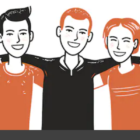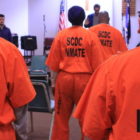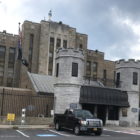
Opinion: Blaming Young People For COVID-19 Infections, Crime Is Unfair Stereotype
|
As Latinx and Black Americans experience highly disproportionate rates of coronavirus infections, mainstream and progressive commentators correctly conclude that conditions of poverty, including cramped living and working spaces, forced returns to work and less access to quality health care, are responsible for higher case counts in communities of color. When new infections shifted strongly from racially diverse, Democrat-voting to mostly white, Republican-voting states this summer, commentators issued political criticisms but refrained from suggesting innate cognitive or moral problems, even as media reports showed unmasked crowds flouting public health standards. For more information on JJIE Hub Newly Added Resources, go to JJIE Resource Hub | Newly Added Resources
Contrast that restraint with the mass blame game that ensued when coronavirus cases rose among young people. Commentators as diverse as California’s Democratic Gov. Gavin Newsom, Florida’s Republican Gov. Ron DeSantis, MSNBC host Chris Hayes, Dr. Irwin Redlener, New York Times reporters and scores of others hurled epithets such as “selfish,” “reckless,” “partying” and delusional “invincibility” at teenagers and college-age adults to charge them with moral and cognitive defects.
Why the abrupt, often angry change in tone when those infected were young rather than black, brown or older white adults? After all, many of the same challenging conditions apply to young people that apply to people of color.
Young people’s risks for certain behaviors derive from their much higher poverty rates compared to older Americans, not innate recklessness.







